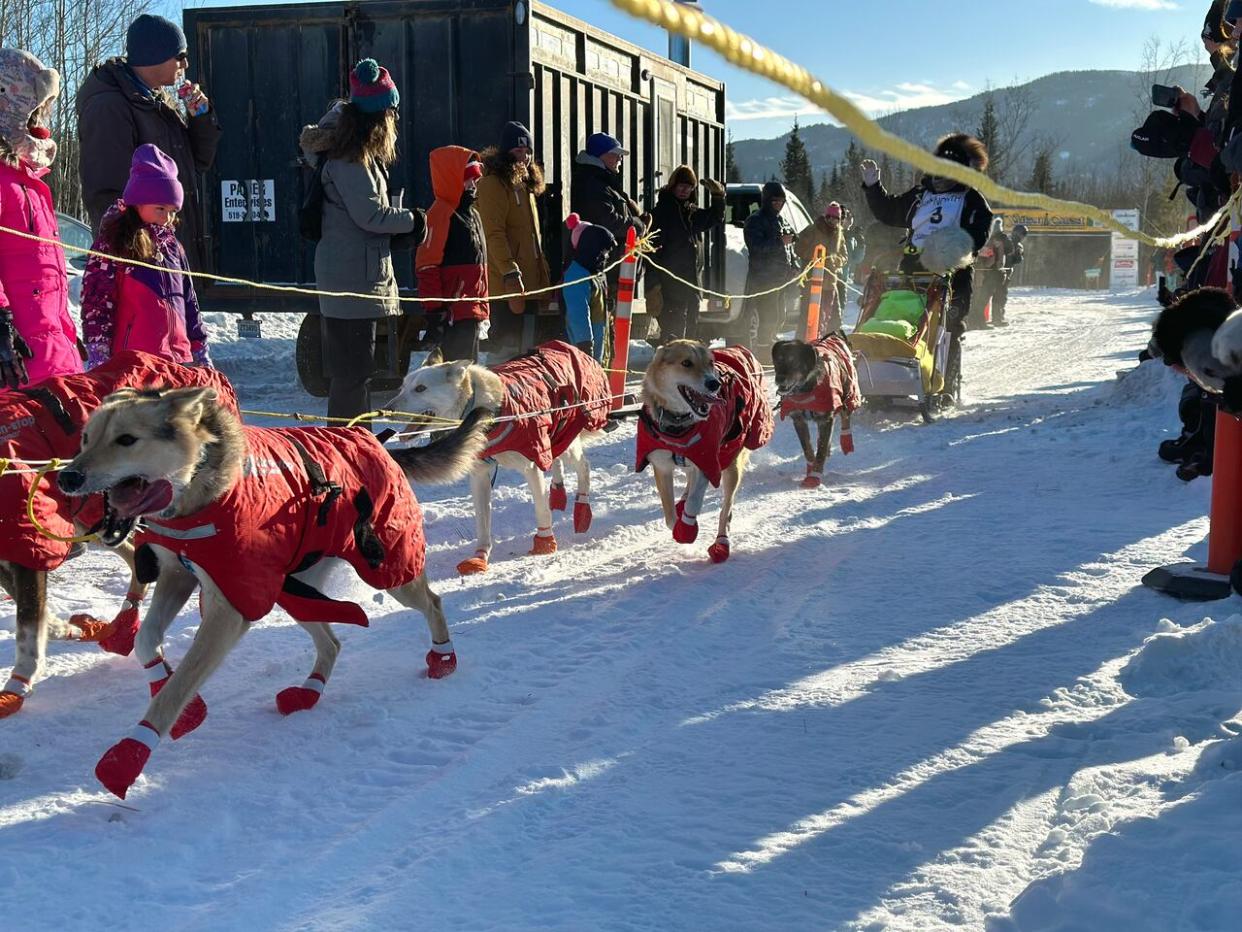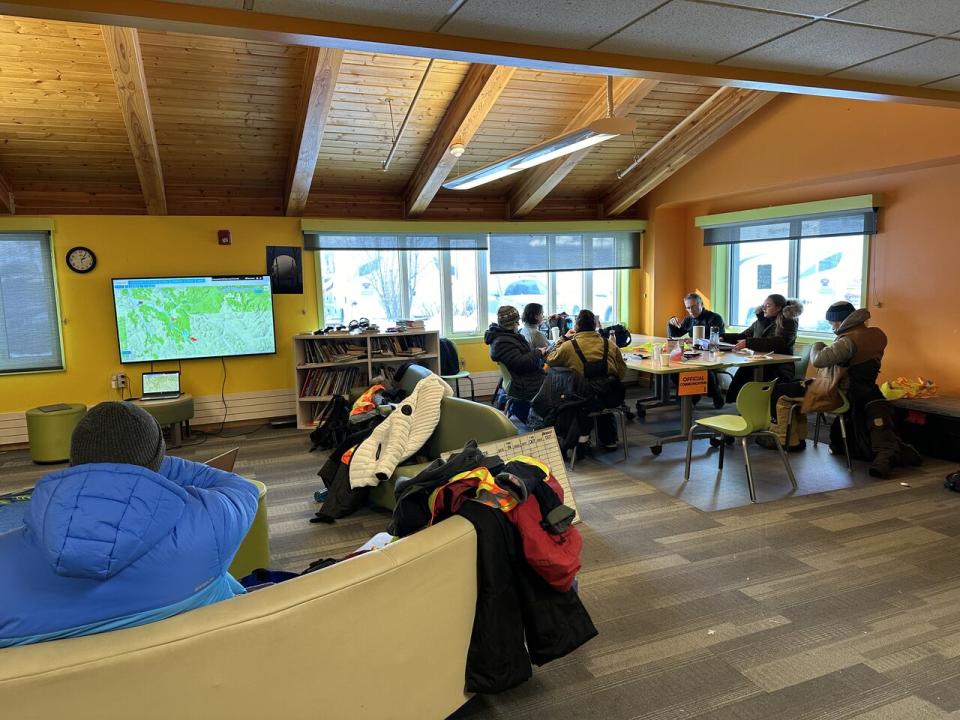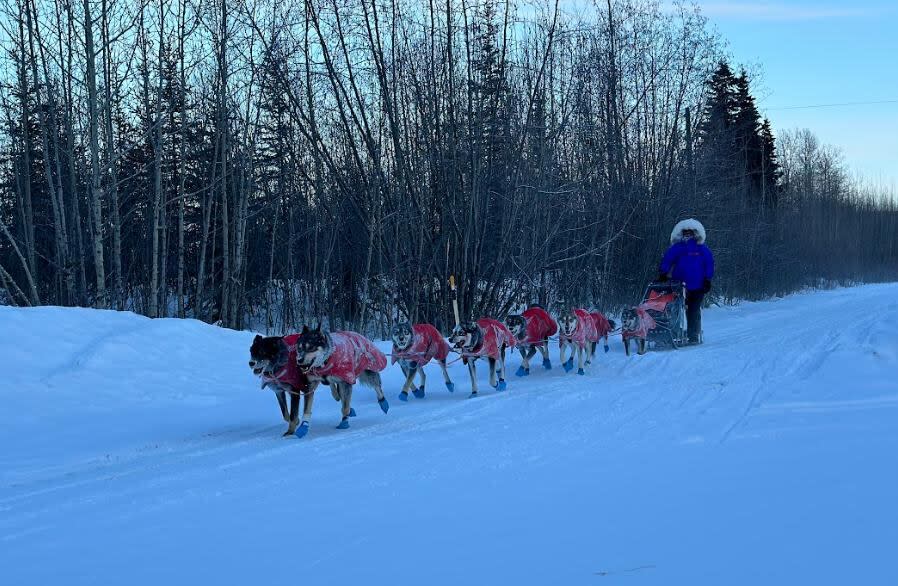Yukon Quest organizers announce race will end early due to poor trail conditions

Yukon Quest have organizers announced the race will end early due to trail conditions
Around 11 p.m. Sunday night, with the race already well underway, organizers made the decision to shave an additional 150 miles (241 kilometres) off the annual Yukon Quest dog sled race.
The race will now end in Pelly Crossing, rather than Dawson City.
The news comes after a last-minute change to the race's start time and location that shortened the race as well. Altogether, this means the race, originally supposed to be 450 miles (724) kilometres, will instead be cut short at the 250-mile mark.
'One hundred per cent a safety decision'
Yukon Quest executive director Benjamin Smith said two key factors led to the difficult decision to end the race early. The first: an impassable section of trail.
"We encountered an unexpected occurrence of open water on the river at McCabe Creek," he said.
That open water required organizers to transport teams from Carmacks to McCabe.
The second factor was severe weather that delayed a volunteer team out of Dawson. That meant that a planned checkpoint at Scroggie Creek, which is near the midpoint between Pelly Crossing and Dawson, wasn't ready in time for mushers.

Yukon Quest race officials wait for mushers to arrive in Carmacks on Feb. 4. (Andrew Hynes/CBC)
"They encountered significant trail conditions that delayed their attempts to get set up," Smith said.
The initial plan to get to Scroggie Creek from Dawson City was to fly, but when that became impossible, volunteers raced to reach Scroggie by snowmobile. In the end, the conditions were so poor that they fell behind schedule.
The result was that not only would there not be enough infrastructure ready to support arriving mushers, but that the trail ahead was a question mark.
"The judges and [race] marshals took all of that into consideration and determined that it was in the best interest of all the teams not to send teams forward from Pelly, where we were unsure of what the conditions might be on the trail moving forward," Smith said.
"This was one hundred per cent a safety decision."
Smith said mushers have been disappointed but understanding.
Challenges from day one
Even earlier in the race, mushers and race officials were noting unique conditions along the route.
Jason Severs is a race marshal for the Yukon Quest. He said the first reports on trail conditions from Braeburn were fairly positive, but the journey from there presented difficulties.
"The overflow should be frozen pretty solid right now, but there's a lot of glare ice out there, a lot of wind-blown glare ice on some of the lakes," Severs said.
While usually the waterways have a layer of snow cover, this year, high winds meant that sections of the route were left with expanses of exposed ice.
"They're having to try to find the trail and make sure they stay on the trail," he explained. "The dogs have a hard time with footing, sleds have a hard time."
At the same time, Severs said this has meant a fast-paced, competitive race.
"They're screaming up the trail," he said. "We're seeing times of nine, ten miles an hour."
Mushers forged ahead until the final hours of the race

Mayla Hill arriving in Carmacks as part of the Yukon Quest 450. (Andrew Hynes/CBC)
Mayla Hill had aimed to complete the full 450 mile. She arrived in Carmacks at noon on Feb. 4.
"It's faster, it's icy, it's hard, but I mean every year, there's new challenges," Hill told CBC that afternoon.
"Faster is fun, but then there's also injuries and incidents you can get into with going too fast. You know, spin around a corner or come down a hill with too much speed."
Still, Hill said she's been regularly floored by the beauty of the land around the trail and the excitement of the race experience.
"Every single time you look at the dogs and realize where you are."
Mushers are expected to reach the final checkpoint in Pelly Crossing by late afternoon Monday.


